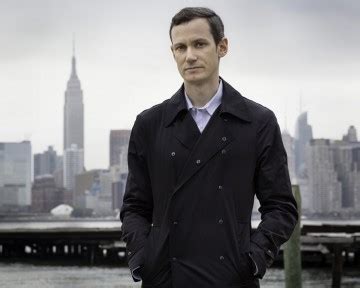A Quote by Carrie Nugent
Back in the day, I've heard, particularly with the near-Earth asteroids, there were some asteroid hunters that knew the names of every one.
Related Quotes
If you were to stand on an asteroid in the main belt of asteroids between Mars and Jupiter in our solar system, you might be able to see one or two asteroids in the sky, but they would be very far away and very, very small. So you wouldn't have this 'dodging through tons of rocks' business you get in the movies.
The hazards posed by Near-Earth Asteroids are assessed by Sentry, a computer system developed by the Near-Earth Objects Group at NASA's Jet Propulsion Laboratory in Pasadena, Calif. The software factors together a cosmic rock's coordinates, distance, velocity, and gravitational influences to calculate its trajectory.
Who were my mentors in poetry and literature? This is a matter of opinion. Some see in my books the influences of authors whose names, in my ignorance, I have not even heard, while others see the influences of poets whose names I have heard but whose writings I have not read. And what is my opinion? From whom did I receive nurture? Not every man remembers the name of the cow which supplied him with each drop of milk he has drunk.
My relationship to the desecration of the earth was very theoretical and intellectual until I got sick. I could never watch anything about polar bears dying or the death of bees. There were certain things I knew I couldn't go near because they were too devastating. But I don't think until I got cancer did I get it in my body, what was happening to the earth. I finally went: "Oh! Earth! Organism!"
The theory I'm putting forward here is that storytelling is a genetic characteristic in the sense that early human hunters who were able to organize events into stories were more successful than hunters who weren't—and this success translated directly into reproductive success. In other words, hunters who were storytellers tended to be better represented in the gene pool than hunters who weren't, which (incidentally) accounts for the fact that storytelling isn't just found here and there among human cultures, it's found universally.
Unlike some of my other dharma brothers who got names that were very long and obscure, and nobody could remember or pronounce, that they didn't like. They wanted to give their names back, but it wasn't like that, it wasn't transactional. He would name some people and say 'you're married', and then they were married, but you know it wasn't really transactional.































